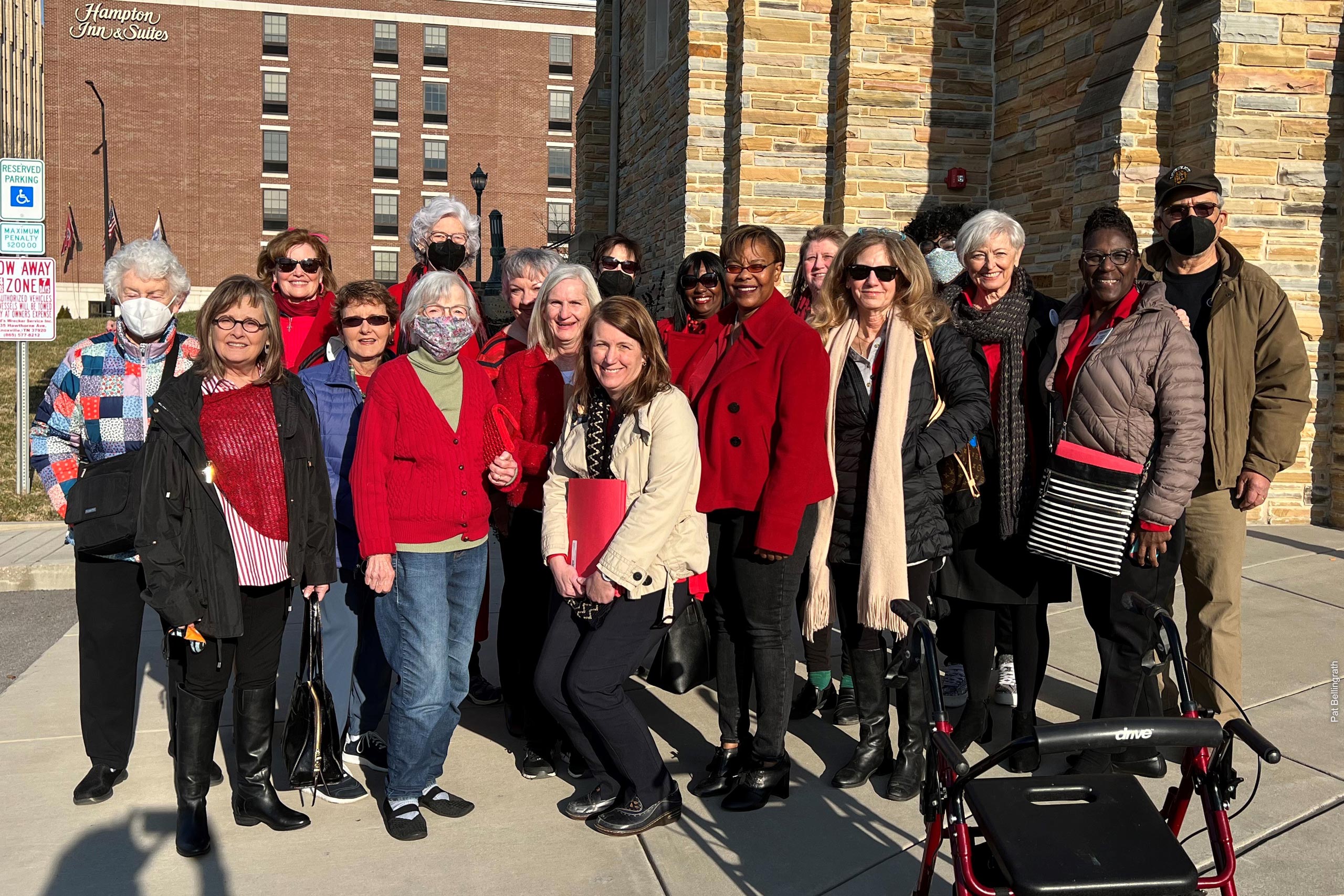
Latest News
May/June response: Do Not Stop Them
Members of United Women in Faith work together to end the school-to-prison pipeline and give more children a chance at a hopeful future.
by Emily Jones
“Let the little children come to me; do not stop them; for it is to such as these that the kingdom of God belongs.” —Mark 10:14
The school-to-prison pipeline refers to policies and practices that reroute children and youth—especially children and youth of color—away from educational success and toward the criminal justice system. United Women in Faith’s campaign to interrupt the school-to-prison pipeline is a contemporary expression of our longstanding commitment to the well-being of children and youth and the struggle against racism in all its forms.
An unfair system
In 2021, the U.S. Department of Education’s Office of Civil Rights released updated data on discipline in public schools. The results were grim. Black K-12 students, only 15.1 percent of enrollment, comprised 31.4 percent of students receiving in-school suspensions, 38.2 percent of students receiving out-of-school suspensions, 38.8 percent of students expelled with educational services, 33.3 percent of students expelled without educational services, 28.7 percent of students referred to law enforcement and 31.6 percent of students arrested at schools.
At every grade level, Black students were targeted.Black students with disabilities faced even more alarming disproportionality: while only 2.3 percent of enrollment, Black students with disabilities were 8.8 percent of students suspended out of school and 9.1 percent of students arrested.
These impacts were apparent from the earliest days of students’ educational journeys: Black preschoolers (18.2 percent of enrollment) were 43.3 percent of students suspended out of school and 38.2 percent of students expelled, funneling them away from the learning opportunities that are rightfully theirs. Add to this the radical overpolicing of youth—1.7 million students attend schools with a police officer on site but no counselor—and the results are disastrous.
United Women in Faith in action
In 2021, Mission u participants across the country studied Monique Morris’ Pushout: The Criminalization of Black Girls in Schools, learning about how racist systems push Black girls out of the classroom and toward confinement. Morris and the many youth voices featured in the book offered the gift of wisdom. Members also participated in a free summertime film and discussion series focused on racial justice.
In addition, more than a thousand members and friends contacted their legislators in support of each of two key federal bills: the Ending PUSHOUT Act and the Counseling Not Criminalization in Schools Act. Neither bill will have an easy path through our current legislature, but we continue to speak out in support in expectation that our work will bear fruit.
Some members took their commitment even further. In fall 2021, members in the Baltimore area, led by District Social Action Coordinator Clorie Tildon, herself a former schoolteacher and current school volunteer, joined other advocates on a Zoom meeting to encourage their U.S. representative to cosponsor the Counseling Not Criminalization in Schools Act. A couple months later, Racial Justice Charter Support Team member and Californian Jo Ann Lawson added her voice to a virtual meeting with staff of her California representative to ask for cosponsorship—showing the power of United Women in Faith acting from coast to coast.
However, work to support federal policy can take us only so far. When it comes to matters of education, most key decisions are made at the local and state level. This is one of the reasons why grassroots, local organizing is so important in the work to create change: that’s where big wins can happen!
United Women in Faith from the Holston Conference are one group helping to lead the way in Tennessee. After organizing a successful “Do No Harm” educational workshop in January, members had a chance to turn their learning into local action a few weeks later when the Knox County Board of Education met to discuss educational equity policies.
“The flash call to social action went out five days before the Knox County School Board work session,” wrote President Donna Mosby, “and 21 United Methodist women from across the Holston Conference showed up and showed out in their red outfits in support of the proposed Equity Policy!”
This is what love in action means to United Women in Faith.
Learning about the pipeline—Methodist style!
When we engage in education about the school-to-prison pipeline with members and friends of United Women in Faith, we can draw on a wonderful tool of our Methodist heritage, the Wesleyan Quadrilateral, tweaked to provide a structure and framework for learning. The Wesleyan Quadrilateral, a term credited to Methodist scholar Albert Outler, speaks of the four sources of theological understanding in the Wesleyan tradition: tradition, experience, reason and Scripture.
If we use these same categories to explore the pipeline, we ask:
- Tradition: What is our racial (in)justice history, and how does it inform our understanding of the present?
- Experience: What do people directly impacted by the pipeline say?
- Reason: What do we learn from the data and facts, locally and nationally?
- Scripture: What inspiration and direction does the Bible provide to inform our understanding and action?
What you can do
Feeling inspired? Show up to the work! Connect with local organizers and leaders working to eliminate racial disparities in school discipline, to stop school-based policing and to support educational equity. Sign up to be alerted to racial justice advocacy opportunities at uwfaith.org. Use your power to make a difference. Advocate for change. Stay in it for the long haul.
Emily Jones is racial justice executive for United Women in Faith.

